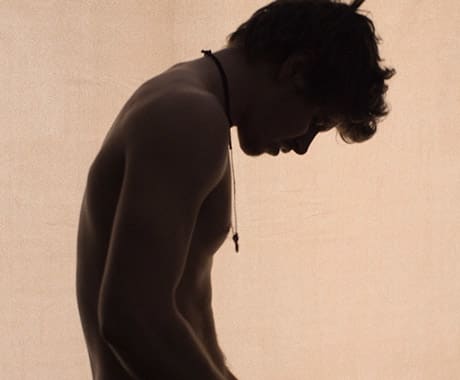This year's festival has seen a trifecta of masterworks from Quebec directors in Xavier Dolan's Mommy, Stéphane Lafleur's Tu dors Nicole and Love in the Time of Civil War by Rodrigue Jean. While the three films couldn't be any different in tone and approach, they are all hyper-focused on the lives of a small group of characters and the intense personal bonds they share, whether in the light comedic flourishes of Tu dors Nicole or the formal effectiveness of Mommy. Jean's Love in the Time of Civil War, a portrait of gay drug addicts living on the streets of Montreal, is easily the most gruelling of the trio, even compared to the emotional heartstring-tugging of Dolan's film. Jean's steady, documentary-esque approach coupled with raw, fearless performances from his ensemble produces a harrowing film that is one of the best of the festival and this year.
The film's success is in creating a landscape of exteriorities, settling into the margins and fringes of Montreal's urban landscape. The film's winter setting pushes its emphasis on the city's unseen spaces even further, as characters are forced to transform non-spaces like cars and the floors of drug dens into places to stay in between sessions of shooting up. The film barely contains a semblance of a narrative, instead providing glimpses of the day-to-day life of the characters as they hang out, buy and sell drugs and commit some petty crimes on the side to scrape by.
The masterstroke of Jean's film is capturing the mundaneness of the addicted life, expressing both the act of getting high and the time in between the next fix as a monotonous, task-based process without any achievement in sight. This singular, unwavering tone is reminiscent of the films of Steve McQueen, in which every element is carefully composed in service of crafting a purely experiential immersion. Similar to McQueen's films, Love in the Time of Civil War is endlessly focused on the relationship between time and the human body, a dehumanizing process, as bodies are submitted to external oppressive governing systems (starvation, sex addiction and slavery in McQueen's films, drug addiction here).
Jean is careful not to draw out any overt or obvious politics from his characters, stripping them of backstory or conscious psychology in order to craft his in-the-moment narrative. The sex on display in the film doesn't provide any type of psychological insight to the desires of his characters, instead becoming part of the all-encompassing system of addiction, devoid of any sort of romantic connotations and used solely for financial gain. Rarely does a film pursue such a bleak outlook to its fullest extent. Love in the Time of Civil War deserves much praise for its commitment to being a purely experiential film, ever-focused on the present without much optimism for the future or nostalgia for the past.
(Les Films du 3 Mars)The film's success is in creating a landscape of exteriorities, settling into the margins and fringes of Montreal's urban landscape. The film's winter setting pushes its emphasis on the city's unseen spaces even further, as characters are forced to transform non-spaces like cars and the floors of drug dens into places to stay in between sessions of shooting up. The film barely contains a semblance of a narrative, instead providing glimpses of the day-to-day life of the characters as they hang out, buy and sell drugs and commit some petty crimes on the side to scrape by.
The masterstroke of Jean's film is capturing the mundaneness of the addicted life, expressing both the act of getting high and the time in between the next fix as a monotonous, task-based process without any achievement in sight. This singular, unwavering tone is reminiscent of the films of Steve McQueen, in which every element is carefully composed in service of crafting a purely experiential immersion. Similar to McQueen's films, Love in the Time of Civil War is endlessly focused on the relationship between time and the human body, a dehumanizing process, as bodies are submitted to external oppressive governing systems (starvation, sex addiction and slavery in McQueen's films, drug addiction here).
Jean is careful not to draw out any overt or obvious politics from his characters, stripping them of backstory or conscious psychology in order to craft his in-the-moment narrative. The sex on display in the film doesn't provide any type of psychological insight to the desires of his characters, instead becoming part of the all-encompassing system of addiction, devoid of any sort of romantic connotations and used solely for financial gain. Rarely does a film pursue such a bleak outlook to its fullest extent. Love in the Time of Civil War deserves much praise for its commitment to being a purely experiential film, ever-focused on the present without much optimism for the future or nostalgia for the past.
